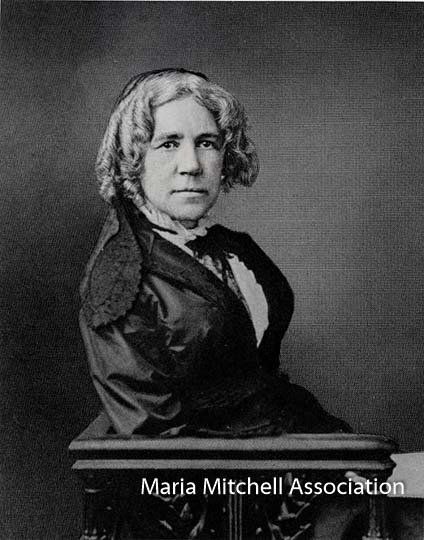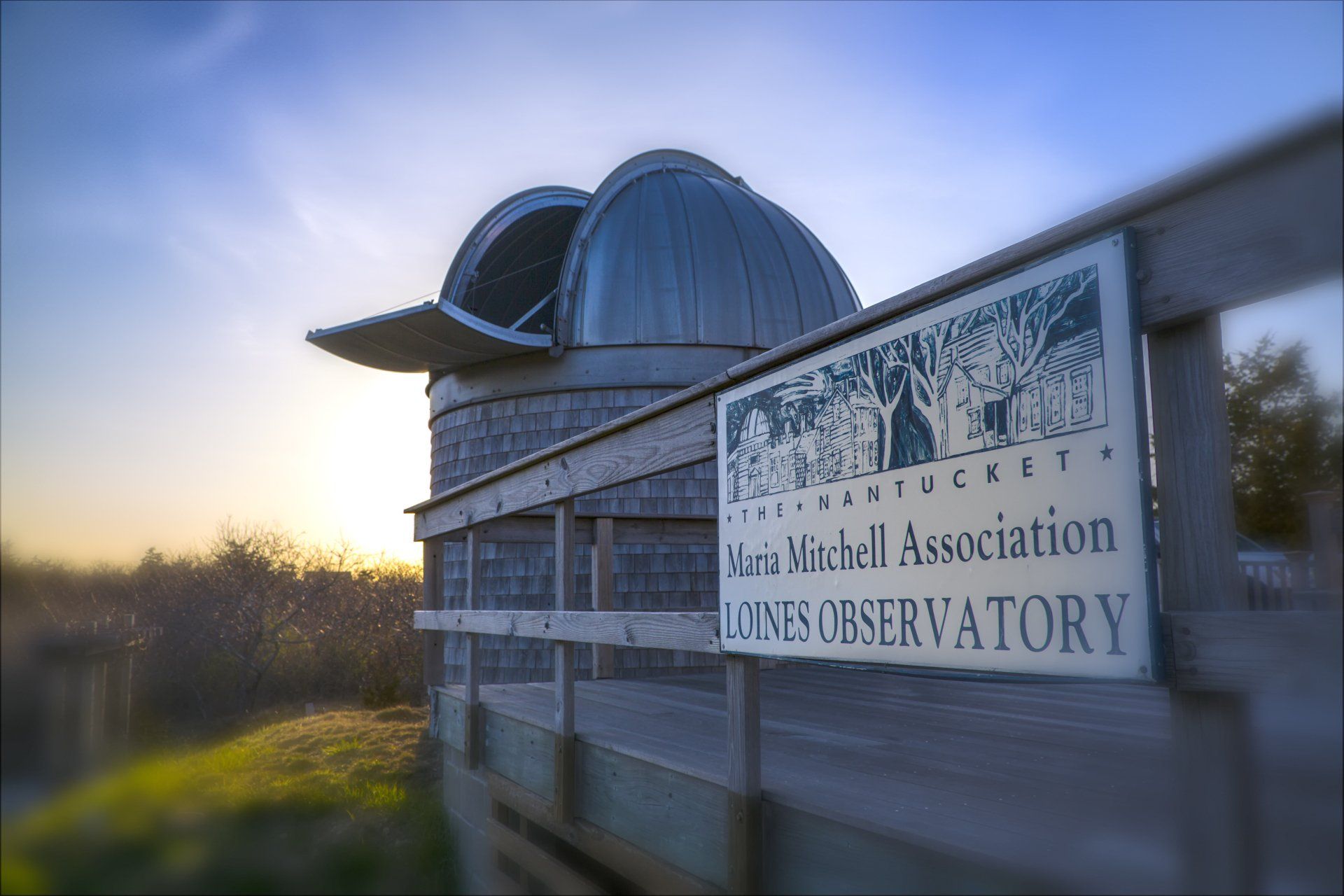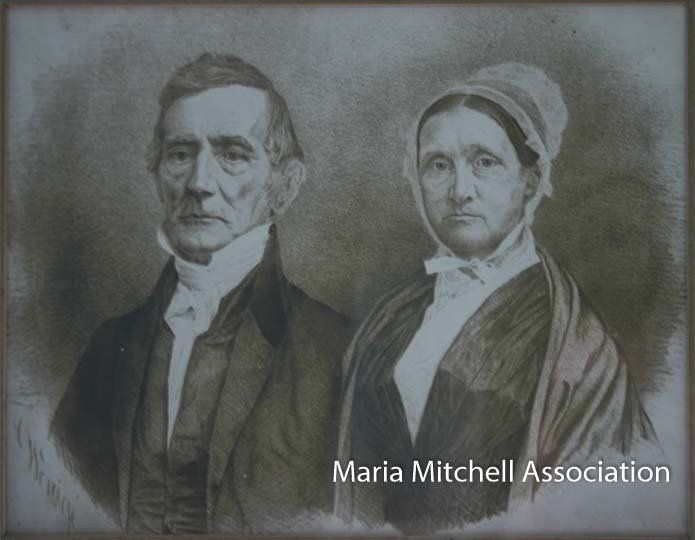William Mitchell and Lydia Coleman Mitchell
My whole life has been a struggle, subjecting thy patient mother to much endurance.
– William Mitchell in his autobiography, 1868
Born to longtime Nantucket Quaker families, William Mitchell (1791 – 1869) and Lydia Coleman (1792 – 1861) first met as young teenagers. William was sent by his father to Lydia’s home to retrieve pumpkin seeds brought back from Patagonia by Lydia’s father, Captain Coleman who would be lost at sea soon after this meeting. In the words of William Mitchell in his autobiography – written at the insistence of daughter Phebe Mitchell Kendall – it was love at first sight and it was his love for Lydia – starting when he was 14 and she was 13 – that kept him from attending Harvard College. The paths were prepared for his application but he could not follow through and leave Lydia behind. Instead, he would join his father in his whale oil and soap business which, with the War of 1812, quickly put the island into an economic freeze, especially with the halt that came to whaling.
The two married in December 1812, and like many newlyweds and islanders confronted with the war at their shores, they struggled financially. The newlyweds eked out a living in Siasconset, where William farmed and Lydia ran a small library in this fishing village at the eastern end of the island.
In his autobiography, William compiled a list of all his occupations, which included: schoolteacher, state senator, soap boiler, cooper, schoolmaster, farmer, surveyor, chronometer rater, and astronomical observer for the United States Coast Survey. William appeared to be most fond of teaching and astronomy – perhaps not just because he was from a sea-going family and community that relied on celestial navigation to travel – but also because he was close to his much older cousin, Walter Folger Jr., the renowned scientist and island clock and telescope maker. William would also serve as the Pacific National Bank’s cashier – essentially being in charge of the entire bank – from 1836 until 1861.
Of her mother, Maria Mitchell once wrote that she never saw her sit with a book when the children were young. With ten in all, she likely had no time. But it was Lydia who examined every book they brought into the house, looked out for their educations, and knew, as one daughter wrote, their “every fault and every merit.” Quite, dignified, and a woman of strong character, she played the foil to William’s gregarious and fun-loving behavior. According to the same daughter, Lydia was, “honest almost to an extreme, and perfectly self-controlled.”
JNLF
Recent Posts





